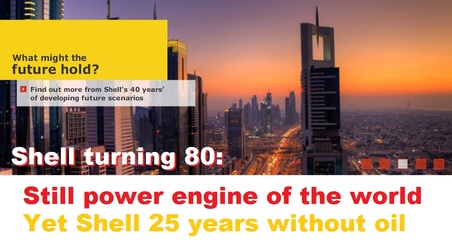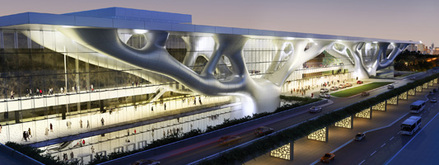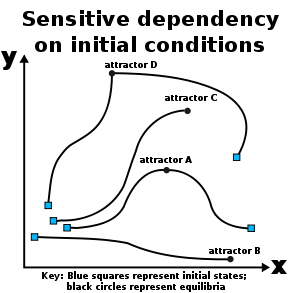 Today PSO will close it's doors after 27 years of supporting capacity development in developing countries. Worth reading is their final document. Time for a personal recap. My first encounter with PSO was a visit to the office in Scheveningen to discuss labour conditions for my ZOA posting in Ethiopia. Following two associate expert postings in Egypt and India I felt the need to finally get my hands dirty and take some responsibility for project implementation. One of the former ZOA directors was amongst the founding fathers of PSO and ZOA clearly managed to reap the benefit from this engagement by having a substantial portion of its personnel costs subsidized by government. However, in my case, the situation was a bit more complicated as my salary was supposed to be covered by the European Commission as lead-Technical Advisor for one of their ACP projects. However, it appeared that the project approval process faced considerable delay. Hence during the first two years the bill from PSO could not be sent to the EC delegation and had to be covered by ZOA. Nevertheless I was glad conditions of employment were well covered by an independent body. No need to negotiate with my employer on house rents, schooling fees for children and the like. In my view still one of the most undervalued services PSO offered to its membership. Nevertheless at some point in time ZOA played equal and was ready to expand on the programme in Ethiopia attrackting an additional staff member. This triggered my second encounter with PSO. Unlike my own intake at PSO some years ago, this time the contract had to be 'framed' as a capacity development project. What we all implicitly knew for years already, finally also had come to the attention of the policy makers. Our technical assistance was not there to stay. We needed to plan right from the beginning how we would develop capacity that could release us from our heavy responsibility in due time. It took me a couple of e-mails up and down to the PSO account manager in Apeldoorn to have our application match the requirements of the donor and have the salary of our new Program Advisor, as she was called, covered by PSO. My third encounter with PSO was upon my appointment with Prisma where I learnt that local partners of Prisma member organizations took part in a PSO supported capacity development training program. Though I was attracted to administer the MFS1 grant provided by the Dutch government, I also had PSO temporarily under my care and corresponded with my (future colleague) Pieterbas Buijs on the achievements of our training program. My fourth encounter with PSO was when I applied for a job following the successful administration of the MFS1 grant and having contributed to securing a second grant MFS2 for Prisma, time had come to move ahead and take on another challenge. I managed to convince colleagues at PSO that I could successfully deliver on the closure of the Humanitarian Aid portfolio. In the process I also became responsible for administering 7 learning trajectories of humanitarian aid organizations. It was fun to find my own salary details in the PSO system and review the correspondence we had years ago on housing allowances and the like. I quickly realized I was invited to wittness the gradual demise of an organization that in my view had a lot of potential in terms of their focus and methods of working, facilitating complex change processes, but lacked the skills to manage its own change. I still am convinced that PSO could have turned their work in a successful business model serving both its former membership of NGOs, government administrations and businesses locally and abroad as several cross-sector partnership initiatives were getting shape. Nevertheless, PSO has helped develop the capacity of 30.000 development professionals and helped build the capacity of numerous international and local development organizations. Several of my former colleagues found challenging new opportunities to contribute their knowledge and skills in facilitating change processes as a group of consultants (through Double Loop) and Partos and Humanity House will be hosting some of the esablished learning platforms. Personally I hope to transfer the lessons learnt to students at Van Hall Larenstein, where I have been appointed as Lecturer Capacity Development. I am really looking forward to this new challenge which I hope to combine with a continued contribution to quality cross-sector partnerships through URAIDE and looking forward to further build my own capacity while supporting others to do the same. Wishing you all a blessed new year.  We may not have noticed but yesterday something spectacular happened. People were prepared for a massive change and some even made sure their will was known to a law-firm, just in case. Others clinged to mountains or had themselves locked up in a basement. However, the major change everone was looking for just got spoiled by the many changes that influence the world. These days the world is full of butterfly effects. Every event you share on facebook makes someone else laugh, cry or leaves them indifferent skipping yours and on to the next event of another contact. However, the end of the Maya calender could not be missed. Everyone had a say about it. And that may be the biggeste change ever. It is not in everyone's interest when a plane crashes or when a hurricane approaches a shore. But when the clock stops ticking, that is something which will impact everyone. This realization made the greatest number of people ever to consider this one date and one time, even in attempts to dissociate oneself from the unbelievers. This leads me to think: what in the world will interest people more then the time left for them. Caught in an interbellum myself in between jobs I wish I could live my life twice or three times. However, I have been given just about 24 hours a day, and do not know how many days are still in stock for me. How important to enjoy each and every minute with thanksgiving. Just like the one butterfly that lives for only one day (eendagsvlinder). Let us at least make a ripple in the air and enjoy the Christmas season, trusting Christ left a ripple that provides for life in abundance.  Today I realized that Shell was 'born' in the same year as I was, today 40 years ago. My mum delivered, right after a November storm demolished my dad's new greenhouse. Luckily some humanitarian aid was around in the presence of some soldiers helping out picking all the pieces of glass from between the lettuce new crop. It must have triggered my attention to crises and appreciation of capacities dealing with it. Forty, a critical age, but one to celebrate nevertheless. The same Shell must have thought while preparing for their workshop about scenario planning at the 13th National Sustainability Congress in the Netherlands last month. They offered the audience the possibility to provide a headline for Shell's eightieth anniversary forty years from now. With the above headline I gave them a bit of a challenge, basically recommending Shell to reconsider its business model. I hope to witness their transition from an oil producing multinational to an renewable energy giant during my lifetime. As I like to be involved I took a first step and accepted a lunch invitation of a lead energy advisor working with Shell in the scenario planning team. An exciting opportunity. Another exciting opportunity is that yesterday Van Hall Larenstein offered me a part-time job as Lecturer Capacity Development. Thank you Grace, Mary, Murtiti, Muditha, Walid, Tegegn and Tesfaye for accommodating me in the lecture on CSR yesterday. Hence, God willing, a substantial part of my time will be dedicated to high-quality practice oriented academic performance of both Dutch graduates as well as mid-career staff from public and private sectors in the Netherlands and abroad from January onwards. I trust my social entrepreneurship in the context of URAIDE will serve well to broker functional relations between the academic world and relevant organizations and industries. It is a privilege to be allowed to help build individual capacities, build my own capacity in the process and together contribute to strong societies world-wide. It will help me to create a bit of countervailing power to the doom-and-gloom scenario's that unfold at present through focusing on individual talents and opportunities as signs of hope. Together all these capacities may facilitate the turning point at individual and collective level in order to take better care of this beautiful planet, enjoying life in abundance.  Quite often, while working on a blog, I just realize how priviledged I am. To have a partner providing for my livelihood (pursuing her career in teaching) and allowing me to run a social enterprise. The theme of todays human rights day is My Voice Counts. Currently 'Exercising my rights' I just realize how many are underpriviledged in this regard. Though having the right, they have no means to exercise them. This motivates me to speak on behalf of so many brave people I have come accross in my career. Today I was even reminded of one of them, a strong Ethiopian lady named Alem, who served us in our household while living abroad. Alem currently works for an American famil as I learned, and is still dreaming of her own bakery. I lost contact but gladly gained her mobile phone from a former colleague who revisited Ethiopia a couple of weeks ago. While I chip every morning some flour and oil in our bread making machine, I never realized that for Alem it would have provided the business case that could excessively improve her life. Having rights and exercising them is all that makes the difference. However, in the end it is not only about her claiming her rights, but also about me acknowledging her rights and stepping in and support her claim. This way we can help each other realizing our dreams and contribute to real empowerment. Now it is up to me to get in touch. At the same time I realize it is still up to her to express her dream and start living it.  Yesterday Herman Snelder, director of a Dutch consultancy and training firm focusing on international cooperation (MDF), tried to bring some sense to the development sector in the Netherlands. A recent debate in The Hague showed the relatively shallowness of the discussions. The major ideological divides remained untouched, possibly illustrating the move to the centre of the labour party in the Netherlands. Socialists, well represented amongst development agencies, embracing liberal principles by virtue of a, what is called, progressive agenda. Happy to jointly do away with conservatism the Dutch liberals and socialists started a journey that will bring them into a 'New World'. Question is: With how many people will they end-up there. Do public-private partnerships deliver? The cabinet still has an Anglo-Saxon orientation towards markets and the way they should function, despite the backlash England is experiencing right now from a number of trials of outsourcing key-functions of governance (like the sub-contracting of the London subway). Public-Private partnerships that did not really bring the promised efficiency gains but instead increased the tax burden. "Management for Development Foundation" rightly asks attention for the what is called Rhineland model that prefers longer term prosperity and stability (stakeholder value) over short-term profits (shareholder value) that characterises the Anglo-Saxon model. However, there is one problem. Due to abundant risk sharing between governments and the private sector in the past decade (quite against liberal principles of free markets where banks should be allowed to fail), the state is close to bankrupt and has to ask its citizens for finance. In situations where the state failed to deliver for its citizens it will be hard to raise public support for government finance. Localizing the Rhineland model Therefore, I suggest we reinvent the Rhineland model, bringing it down to the local level. Strong communities will prevail in a world of failing states. The internet offers opportunities to simply by-pass the national boundaries. However, it also offers opportunities for free market capitalists to confuse their socialist counterparts and get them going for ungoverned entrepreneurship on the digital highway. This will cause the freely floating around the globe of capital and resources, easy to catch for those smart enough to master the internet. Role of ICTs It is for this reasone that the current WICT ('wicked') conference is of utmost importance to the international development agenda. And a few countries have realized that ideological battles about governing models need to be fought at the digital highway. Traffic rules need to be set. Boundaries agreed. However, typical countries demanding these regulatory frameworks at the moment are Turkey, Russia and Iran. Not really because they favor the Rhineland model over the Anglo-Saxon model but simply to have the means to control 'subversive' citizen movements. Here is where the ideological and the instrumental need to be distinguished. The rule setting should support participation, equality and inclusion and avoid discrimination, repression and opportunism that is of a corrupt nature. Where the internet supports breakthroughs in situations of suppression freedom needs to be encouraged. At the same time breakthroughs that are aiming at distorting the status quo and try to bring some new kind of world order, that subsequently requires everyone to submit to, may carry dictatorial characteristics. System change or alternative systems development This is why I would like to plea for alternative information and communication networks and protocols to be developed, along with the internet. I do support initiatives like www.ruralweb.info that aims at developing local content for marginalized groups. As in many parts of the world the internet hardly has any relevance to the local political economy. To those with internet access it often provides a doorway to escape to another world. Therefore it may be worth exploring how to develop independent systems of information exchange that will really be supportive to the local economy and bring information governance back to the local level. These systems may vary from traditional drum beats to highly sophisticated ICT infrastructure. As long as the public and private sector walk alongside each other and citizens can make choices whether or not to make use of the services. I just wonder if such considerations are underpinning the discussions in Dubai at the moment. Check-out the blog of Samantha Dickinson to follow the conference from a participant perspective.  COP18 venue in Doha A lot of energy and CO2 emission is spent by many from all over the world getting to a variety of conferences in the Gulf area. The climate conference (COP18) in Doha, Qatar attracted a lot of investors and industries to explore business opportunities that follow in the slip-stream of the conference. However, also others take the advantage of world leaders being in the vicinity, attracting their top-diplomats to other strategic sessions. Public-Private Partnerships in infrastructure For instance: The 3rd PPPs in Emerging Market Summit on Capacity Building and Infrastructure Investment (KWPPP) was organized in Dubai on November 26-28, aiming at identifying bankable and sustainable PPP projects. Development banks have experienced the benefits of combining public and private capital in terms of risk management and want to upscale now. The Dutch government was not ready yet for attending this strategic conference along with the climate conference, leave alone influencing the discourse. ICT for development? Another interesting conference that started today in Dubai is the World Conference on International Telecommunications (WCIT-12) which will run up to December 14. It is an interesting conference as subjects under discussion relate to internet freedom and cyber security issues, tabled by countries like Turkey, Iran and Russia. What is good about the conference is that it is publically broadcasted (#WCIT), possibly preluding more openess on this issue and hopefully informing the debate on data governance and internet freedom. To be continued... |
About meMy name is Reinier van Hoffen. U®Reading
Click here for a summary.
Also find the text of a lecture Dr. Achterhuis held at the 2012 Bilderberg conference. Archives
August 2022
|
AddressNachtegaallaan 26
Ede, the Netherlands |
Telephone+31 (0)6 1429 1569
|
info@uraide.nl
|



 RSS Feed
RSS Feed
















